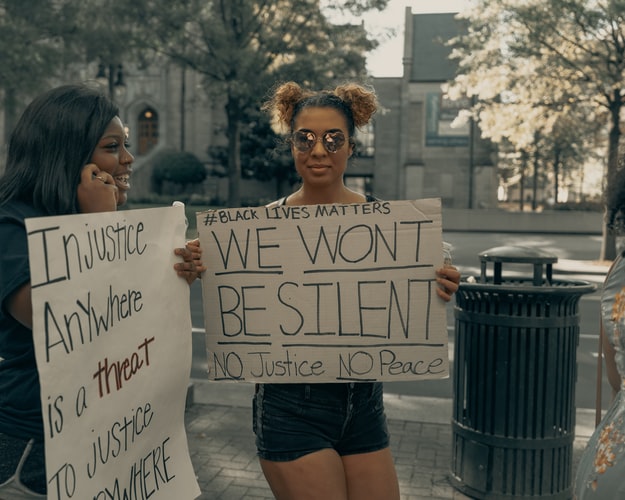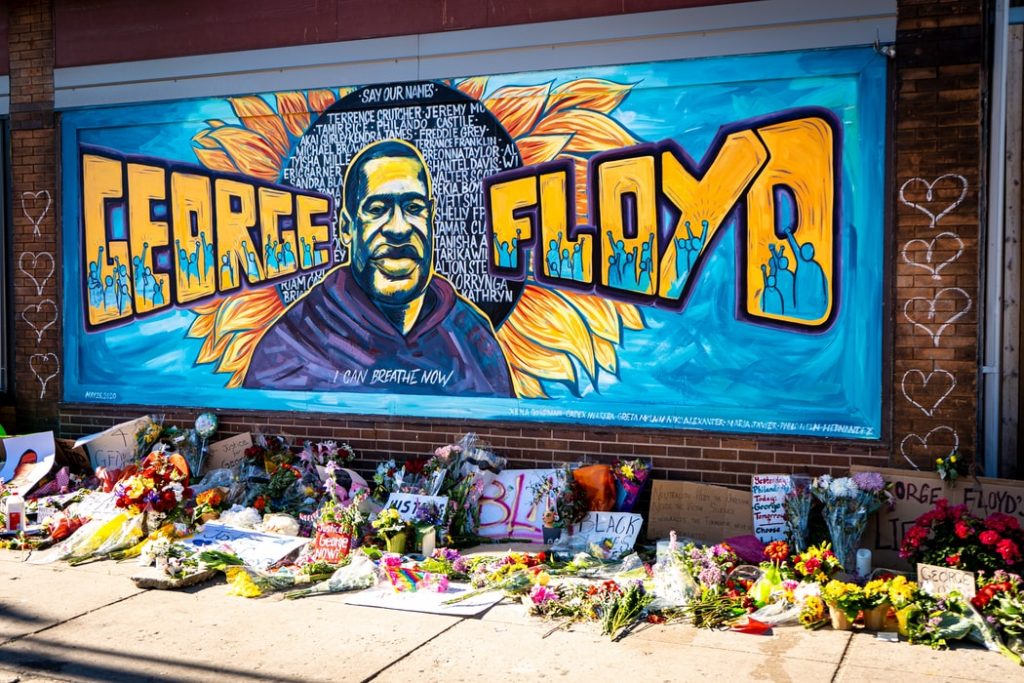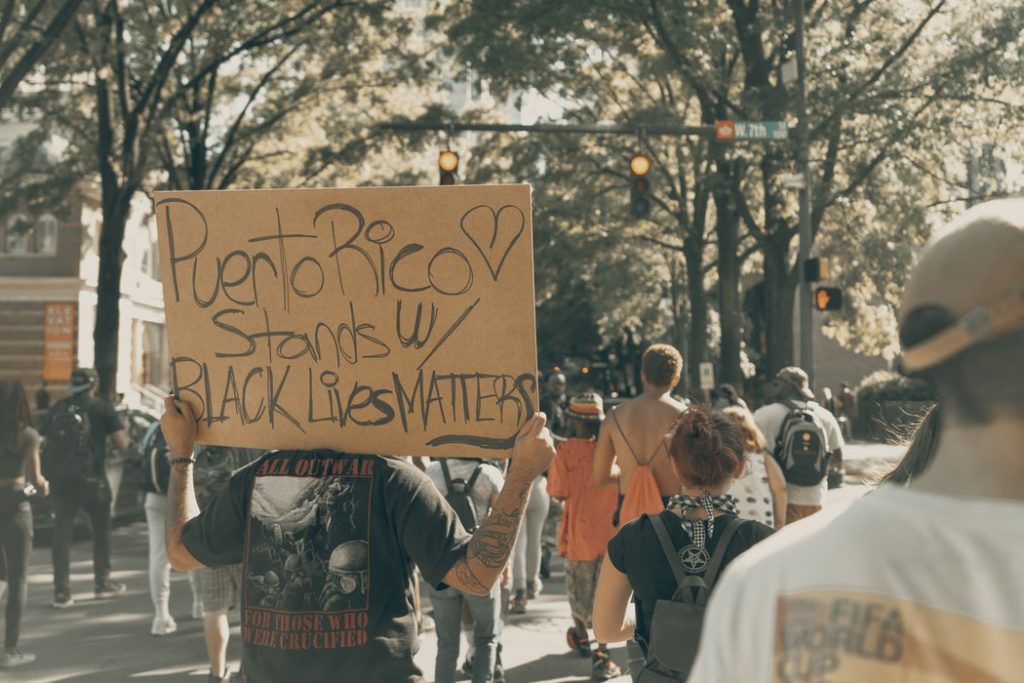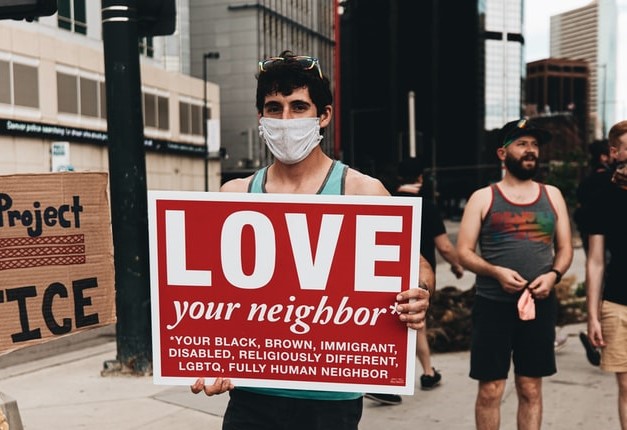Culture June 3, 2020
Why Black Lives Matter is an important movement all over the world.


I am not okay.
Because what’s going on with police brutality and George Floyd are not okay.
I remember the first time I heard about police brutality, it was the case of Trayvon Martin. I must have been 13 years old. And I was horrified. It didn’t feel real. I remember I was getting ready for a poetry event and at that time and we spoke about it. I thought maybe it would be an isolated event. Little did I know.
Then there were the cases of Michael Brown and Eric Gardner. It was happening again and again. The next one I remember vividly looking at and reading about was the case of Sandra Bland. I was 16 years old and becoming more and more aware.
It felt like these things would happen and then there would be a peaceful protest and public outrage. Then it would calm down, then it would reload. And then it would go back through this process. Again. And again.

Fast-forward 5-7 years to this year. The video of Ahmaud Arbrey, being shot and killed while jogging went viral. Now, we are reeling the aftermath of the death of George Floyd.
It keeps on happening and it won’t stop.
It got to the point where I was so angry, and I didn’t know how to place that anger and hurt. I noticed that it feels like we forget that each case that we hear about is another human being’s life that has been taken, unjustly. And it keeps happening again. And again.
I realized this isn’t just a Black problem. This isn’t just a “them” problem but a we problem. As human beings, we have to stand together and fight the horrific racism that just keeps coming up again and again and again. And it terrified me to the core. These are the ones we see, what about the ones we don’t see?
You know, the other day it hit me. That, when we talk about these cases, these aren’t just “another Black woman” or “another Black man.” They’re not just a hashtag or a name we speak. This is someone’s brother. Mother. Sister. Father. Husband. Wife. Friend. Someone whose life was taken away in the most horrific way and the world sees it happen.
The world is watching. And we need to do more now because this keeps happening. And when I speak about “we,” I’m speaking about every single one of us. Black, White, Asian, Hispanic, etc.
But, people can often feel stuck after watching and seeing something horrific like this happen and may question what should I do?


We can speak about racism. Most importantly, we stand up to it. Black or Non-Black. Men, women, and children. Racism and hatred aren’t innate. We aren’t born hating. But it’s socialized within us and around us. So we have to call it out when we see acts of hate. It isn’t “just a joke” when they’re being offensive. It isn’t “just a song lyric” when they’re happily saying the n-word. It’s not okay. We have to talk about it.
We have to educate ourselves and each other. As a Black woman myself, I had to educate myself more and more about the history and about the systematic oppression of Black people both in the U.S. and where I live in the U.K. I had to ask other Black people questions too.
It was not enough for me to just see tweets about what is going on in America. British people have also been protesting and fighting along from this side of the pond. Why? Because racism isn’t a problem just in America but everywhere, and we must stand together as we fight. So a bit of good advice I can give to you is to be educated about Black Lives Matter, as a movement. Read up and learn. Learn why the Black Lives Matter movement started. We can learn about different historical figures.
There are two powerful novels that I would say give important insight on racism by allowing you to see it through the characters. Harper Lee’s “To Kill a Mockingbird” and Malorie Blackman’s “Noughts and Crosses.” These are books I read in high school which even now as a young adult, I would recommend anyone read.
Finally; we don’t stop talking about it. We don’t stop fighting and praying and speaking.


And I looked in the bible, and saw:
Psalm 103:6, “the Lord does righteousness and justice for all who are oppressed”
Jeremiah 22:3, “Thus says the LORD: “Execute judgment and righteousness, and deliver the plundered out of the hand of the oppressor. Do no wrong and do no violence to the stranger, the fatherless, or the widow, nor shed innocent blood in this place.”
Psalm 106:3, “Blessed are those who keep justice, And he who does righteousness at all times!”
Jesus Christ gave us the commandments, to love the Lord with all our heart, soul, mind, and strength, and to love our neighbor as ourselves. What does that mean? It means standing with our neighbor when they’ve even hurt, just the way that we would stand up for ourselves when we’ve been hurt. It means praying for our neighbor as we pray for ourselves. This doesn’t just mean our literal neighbor, but other human beings, who are also made in the image of God! Jesus always stood up for those who were shunned, oppressed, and overlooked by society: the lepers, the poor, women.
We need to make it our mission as human beings to promote justice, and treat each and every single human being with compassion and with love. We speak up and speak out for those who are oppressed, and for the innocent who are dying.
It’s time we stand up. It’s time we stand together. This can’t go on anymore. This shouldn’t be happening nor can it keep happening.
Where there is no justice. There is no peace.
No justice. No peace.
This personal essay came to us via our Story Submission portal. If you have thoughts on the recent instances of racial injustice, we are extending the reaches of our platform to make your voices heard. Simply click here to pitch your story.